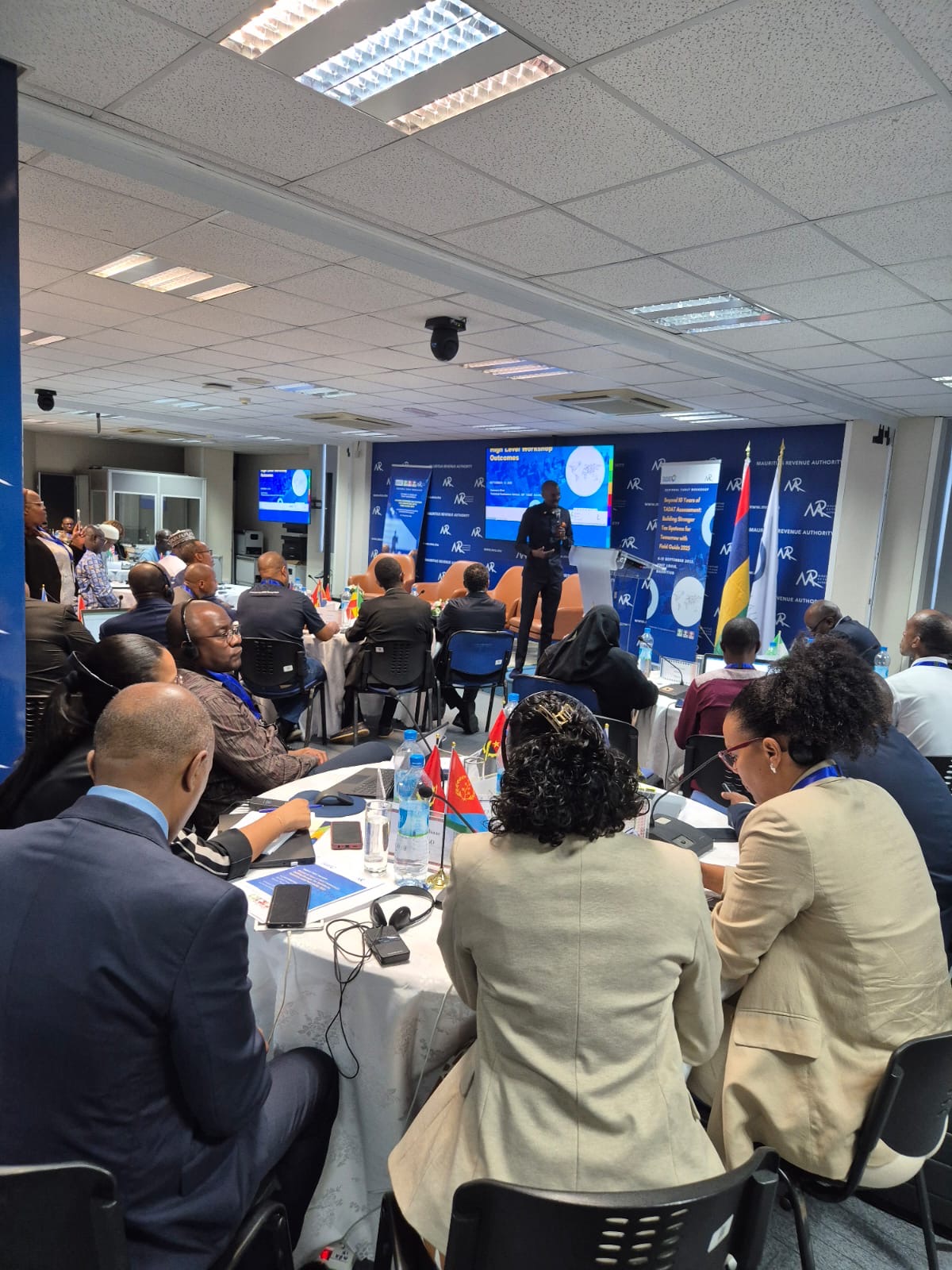DATE & VENUE
SEPTEMBER 8-12, 2025
MRA Custom House,
Port Louis, Mauritius
“Tax Administrations will need to digitize and Innovate”.
"The Tax Administrations need to Reform, Perform, Transform”
Hon. Dhaneshwar DAMRY- Junior Minister of Finance- Mauritius
"The true value of a TADAT assessment lies not only in the diagnosis it provides, but in the dialogue, it enables"
Sukhwinder Singh - Centre Director, AFRITAC South, IMF
Participants keenly follow the official opening of the Regional TADAT Workshop
Session 1: TADAT’s First Decade: Global Trends and insights from Sub Saharan Africa.
Presenter: Modeste Mopa, Head of the TADAT Secretariat, IMF
Objective: To reflect on a decade of TADAT implementation by analyzing global and regional experiences, with a focus on Sub-Saharan Africa. The session explores key lessons learned—including strengths, weaknesses, and the role of repeat assessments—and assesses whether the overall trend indicates progress both globally and within the Sub-Saharan region.
Session III: Beyond the Assessment: Navigating the Realities of Reform Implementation
Presenter: Rameck Masaire, Resident Advisor, AFRITAC East, IMF
Objective: To explore the common challenges countries, face in translating TADAT assessment results into actionable reforms, share practical experiences in overcoming these barriers, and identify strategies to enhance the effectiveness and sustainability of reform implementation.
Session IV: What’s Changed? Real-World Impact of TADAT on Tax Administration
Presenter: Idia Penane, Resident Advisor, AFRITAC West 2, IMF
Objective: This session will examine the tangible improvements and institutional changes that have resulted from implementing reforms guided by TADAT assessments. This session will spotlight the real-world impact of TADAT-guided reforms
Session V: What’s New: The Evolution of the TADAT Framework
Presenter: Modeste Mopa, Head of the TADAT Secretariat, IMF
Objective: To provide an overview of how the updated FG25 responds to emerging global trends in tax administration and supports more effective, consistent, and forward-looking assessments.
Session VII - IX: Field Guide 2025 Update and changes
Presenter: Paul Martens, Expert, TADAT Secretariat, IMF
Objective: To examine the key updates to Performance Outcome Areas 1–9 in the 2025 TADAT Field Guide.
Session X: Field Guide 2025: Deep Dive into selected key themes.
Presenter: Michael Hardy, Technical Assistance Advisor, FAD R1 Division, IMF
Objective: To delve deeper into the new themes introduced in the TADAT Field Guide 2025, with a particular focus on: (i) compliance by design (POA3), (ii) combating tax fraud (POA6), and (iii) performance management (POA8).
Session XI: Field Guide 2025 looking forward: How to make the most of the TADAT framework?
Presenter: Modeste Mopa, Head of the TADAT Secretariat, IMF
Objective: To examine how tax administrations can further leverage the TADAT framework for better impact.
Session XII: Strengthening Tax Systems Through Regional Collaboration: Partnering with the TADAT Secretariat to catalyze tax administration reform
Presenter: Jules Tapsoba, Executive Secretary, West African Tax Administration Forum (WATAF)
Objective: This session highlights how regional organizations are partnering with the TADAT Secretariat to support tax administration reform through coordinated capacity-building efforts
At the close of the workshop, the speakers look forward to seeing participants take these insights back to their countries — helping transform dialogue into action and building stronger, more resilient tax systems for the future.
Mr. Yankuba Darboe - CG Gambia Revenue Authority
Mr. Sam Shivute - CG Namibia Revenue Authority
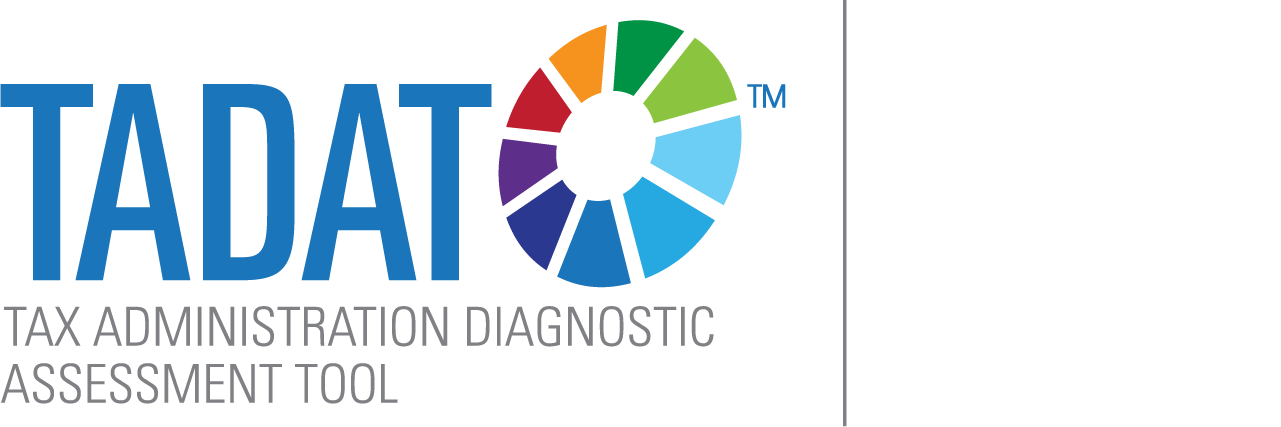

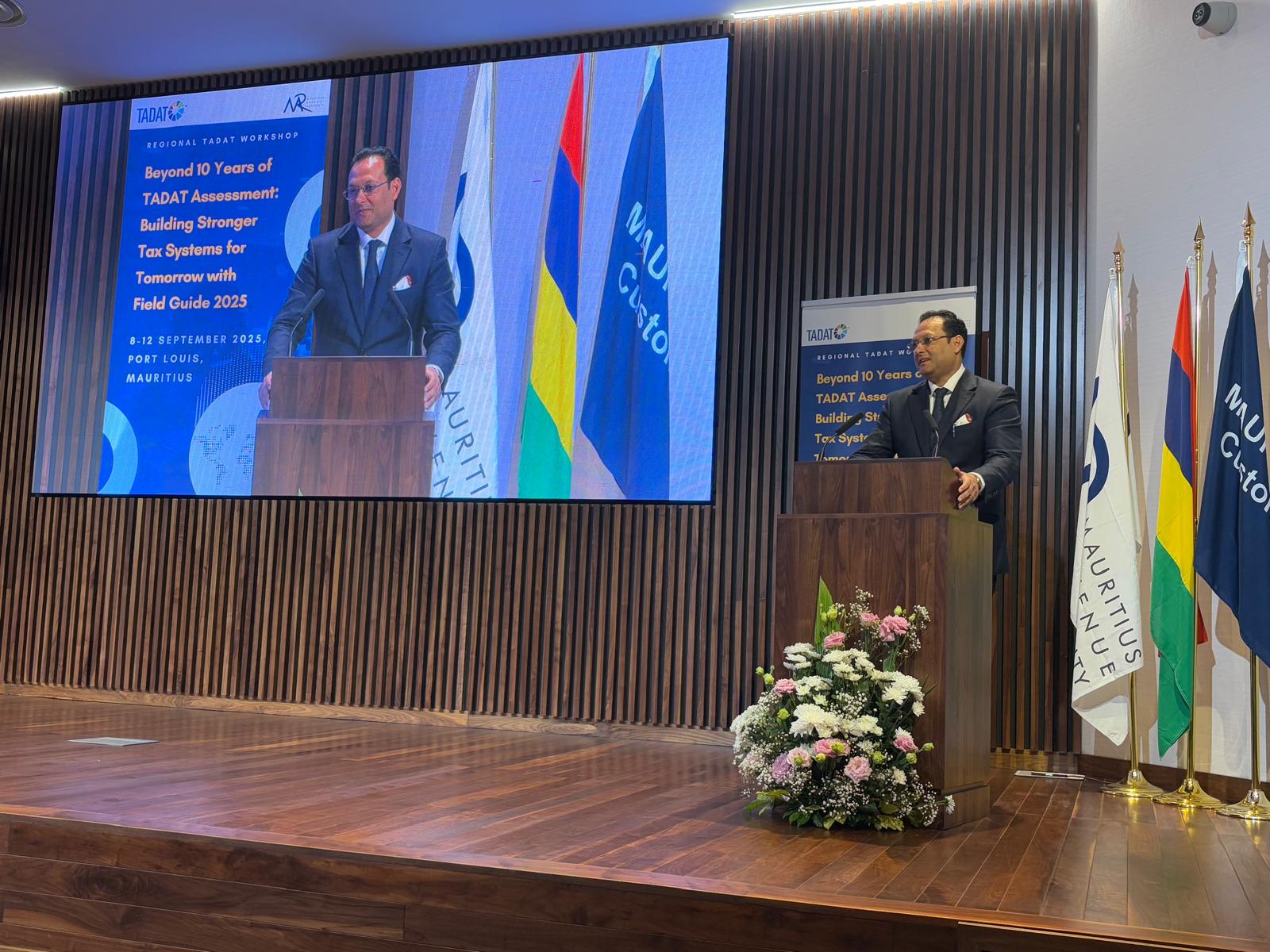
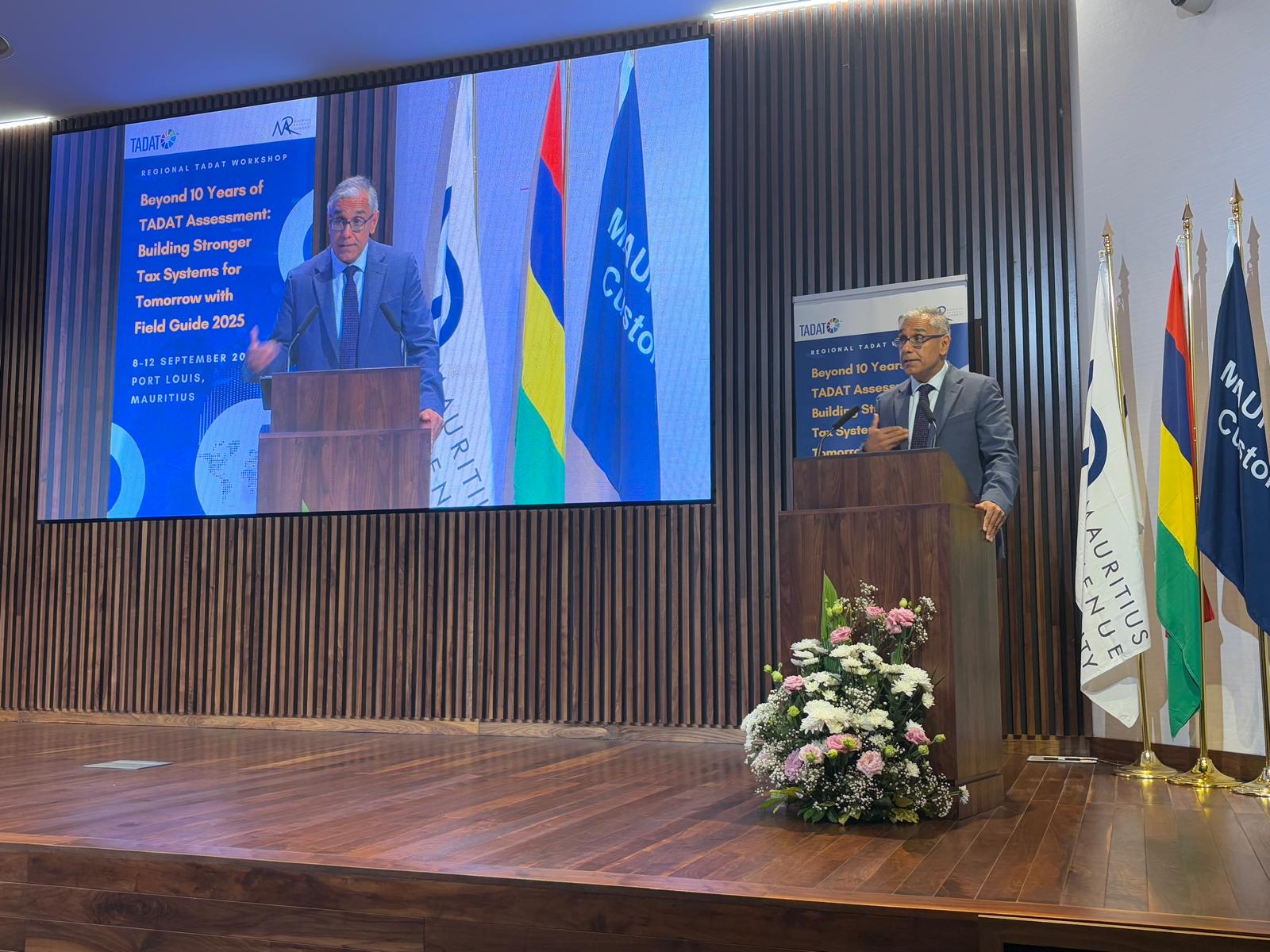
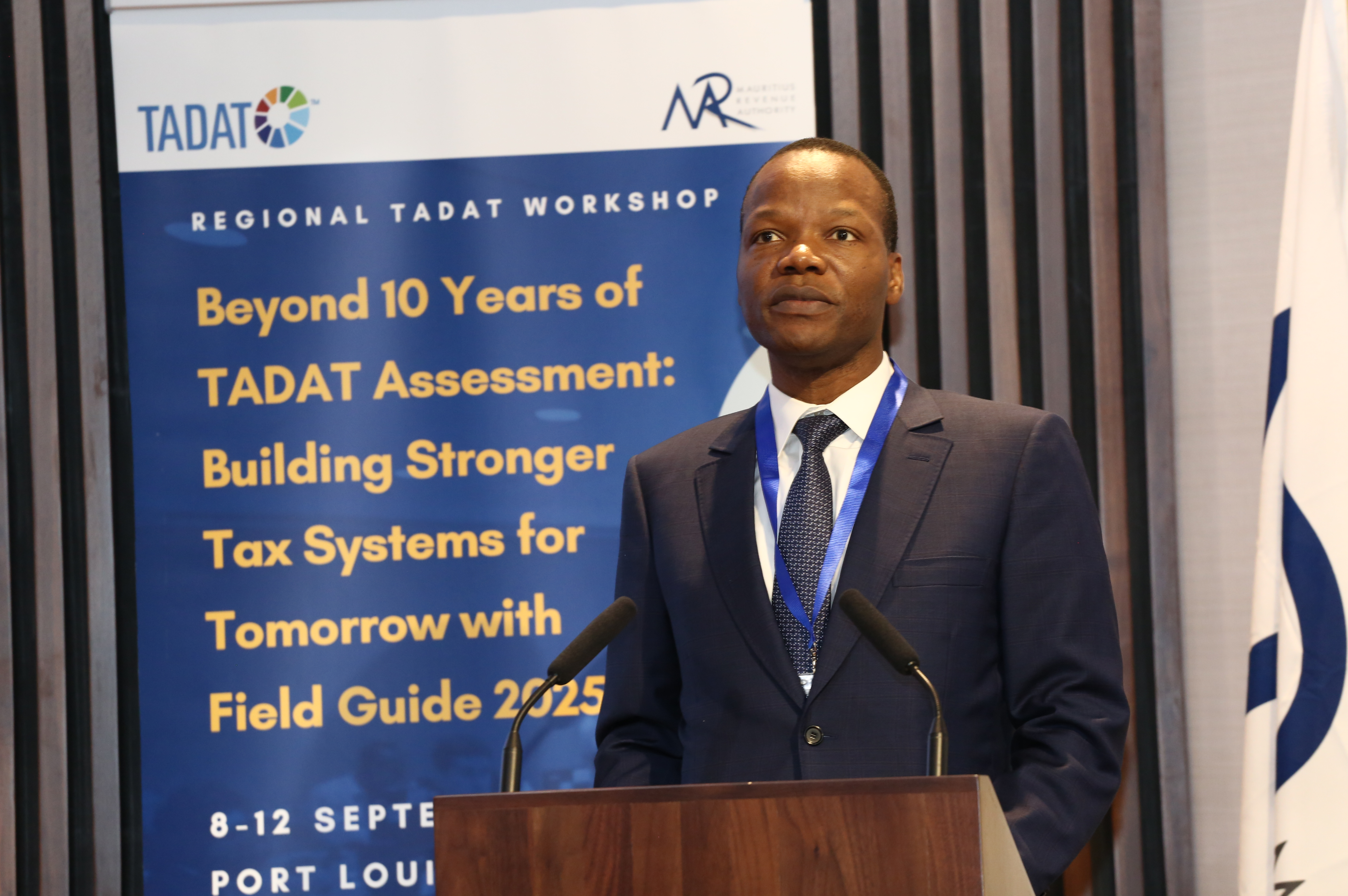
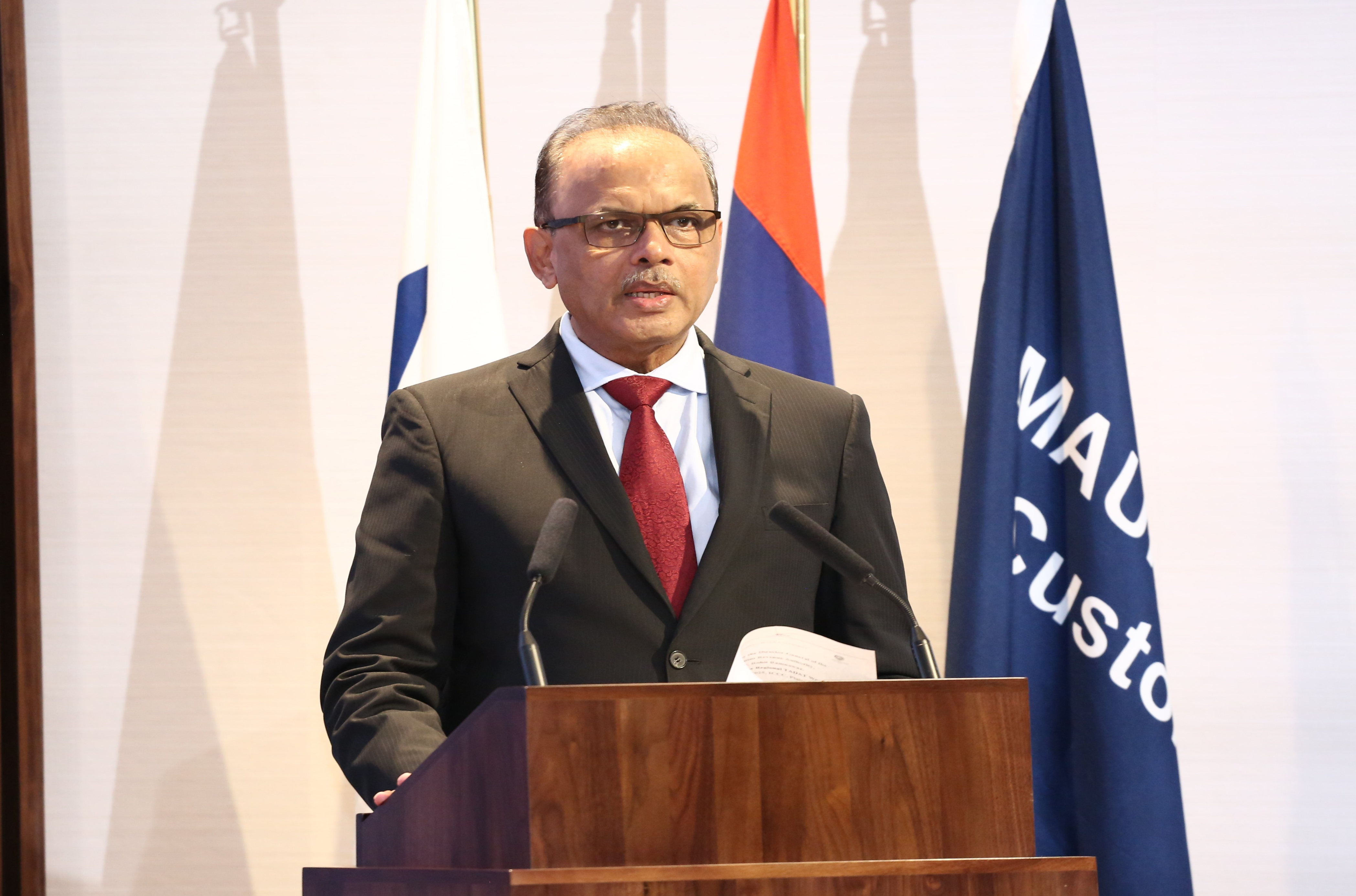
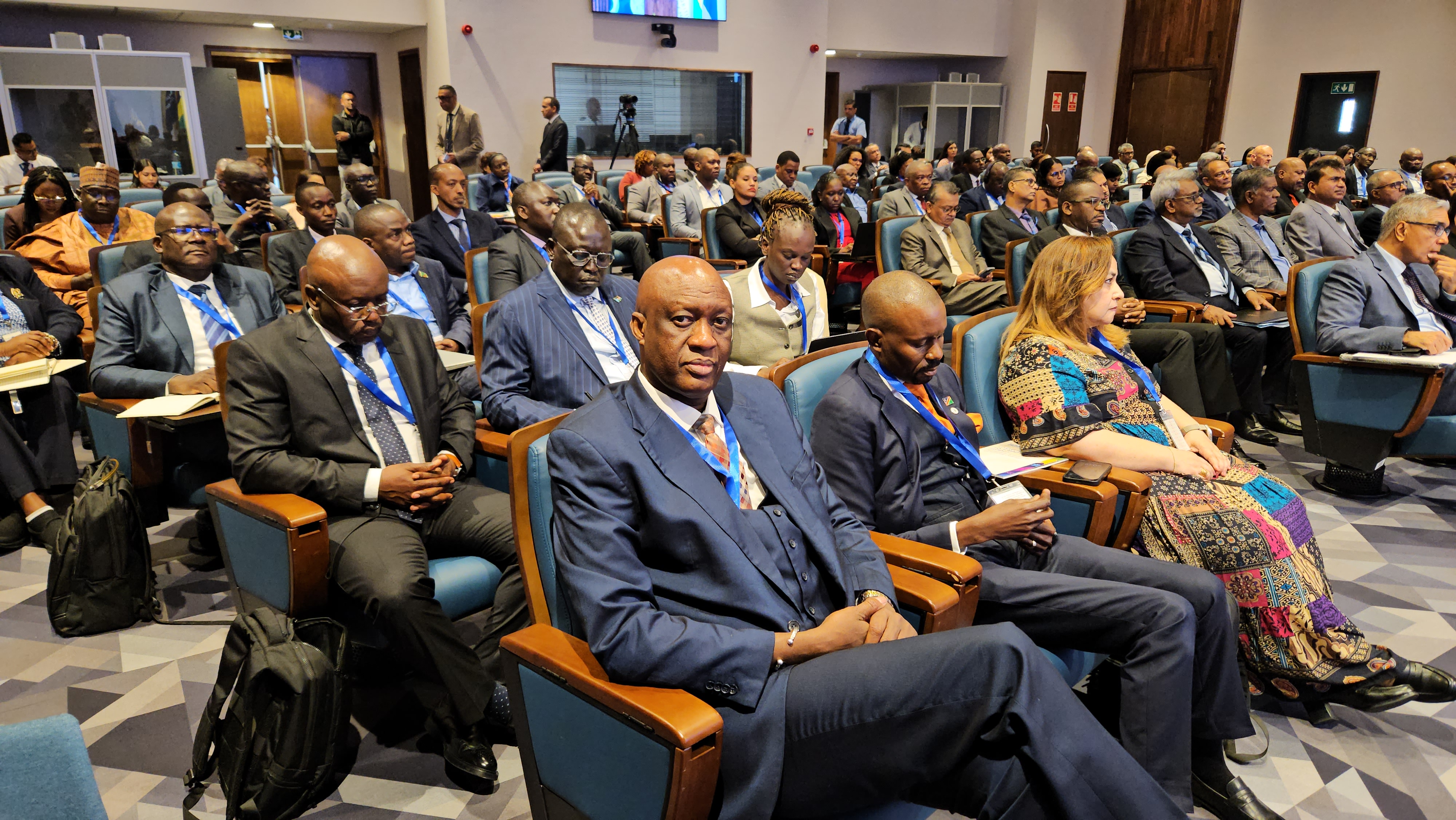
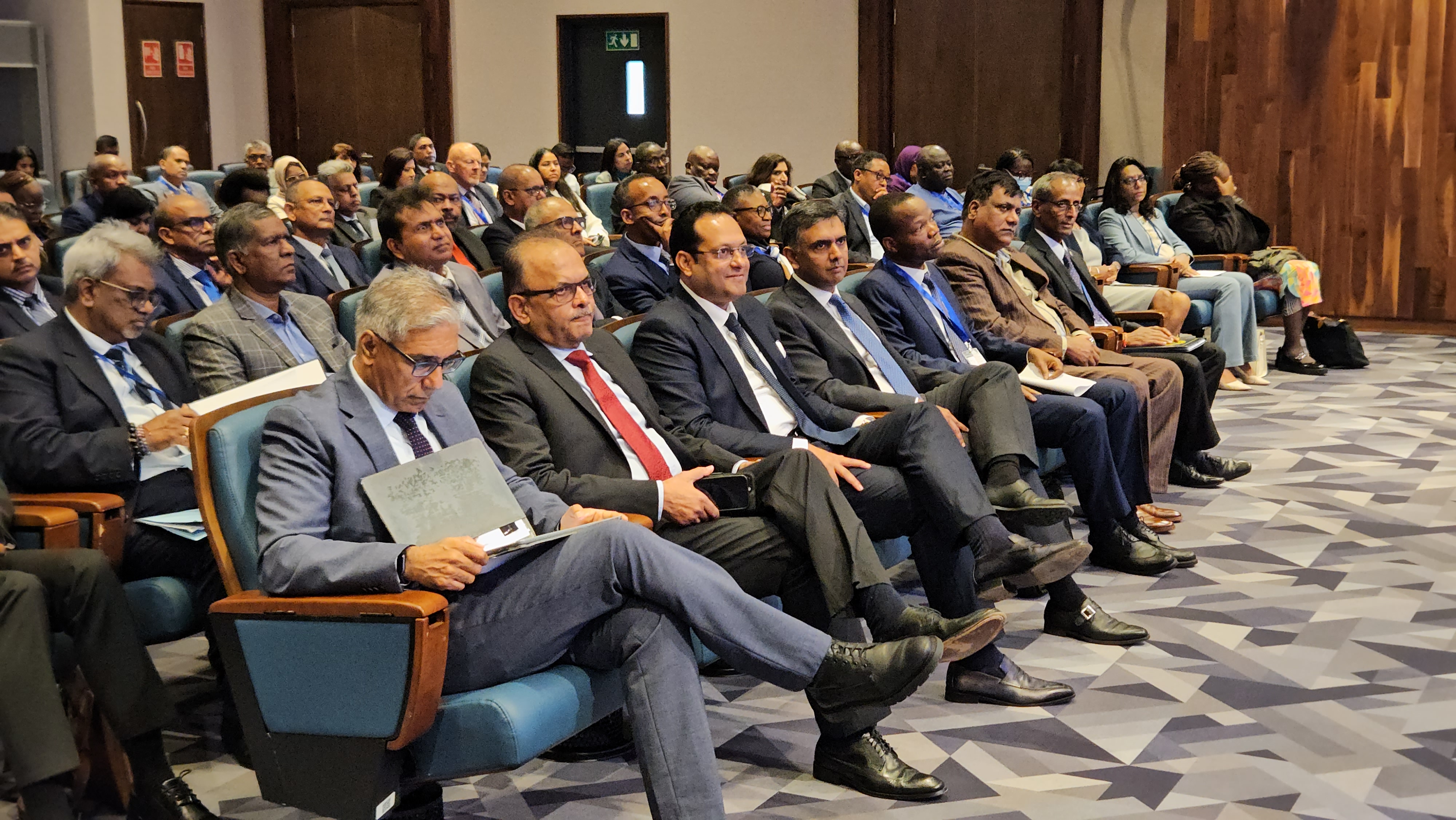
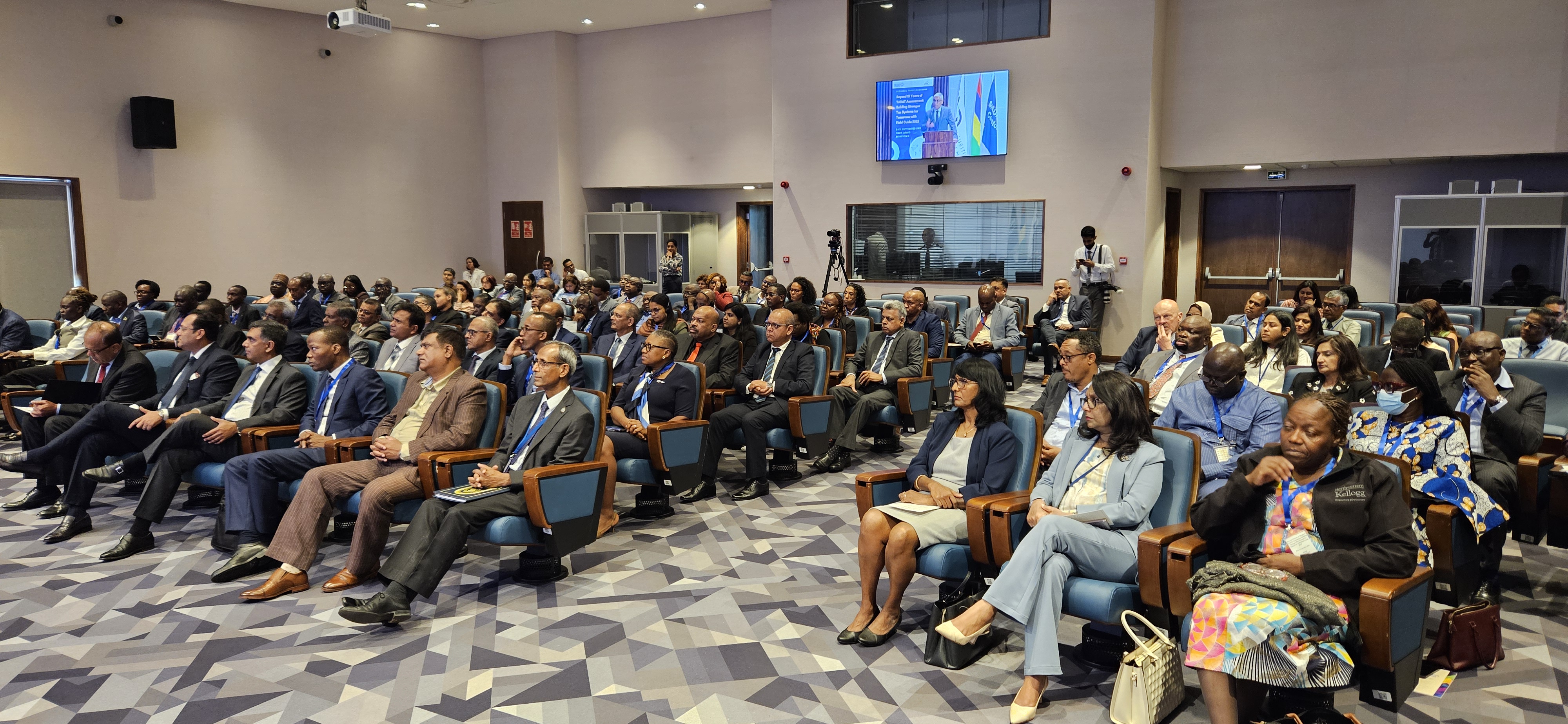
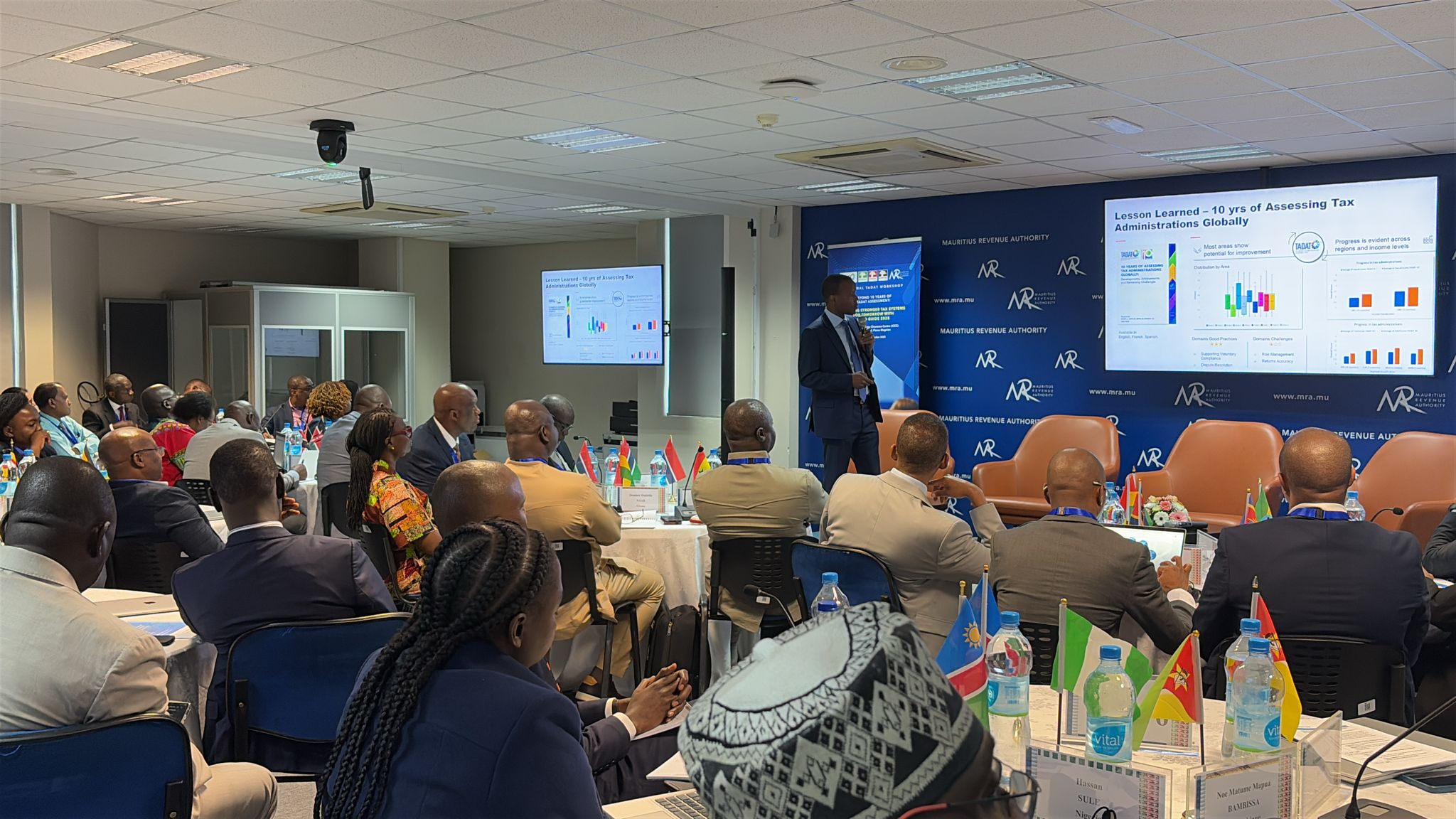
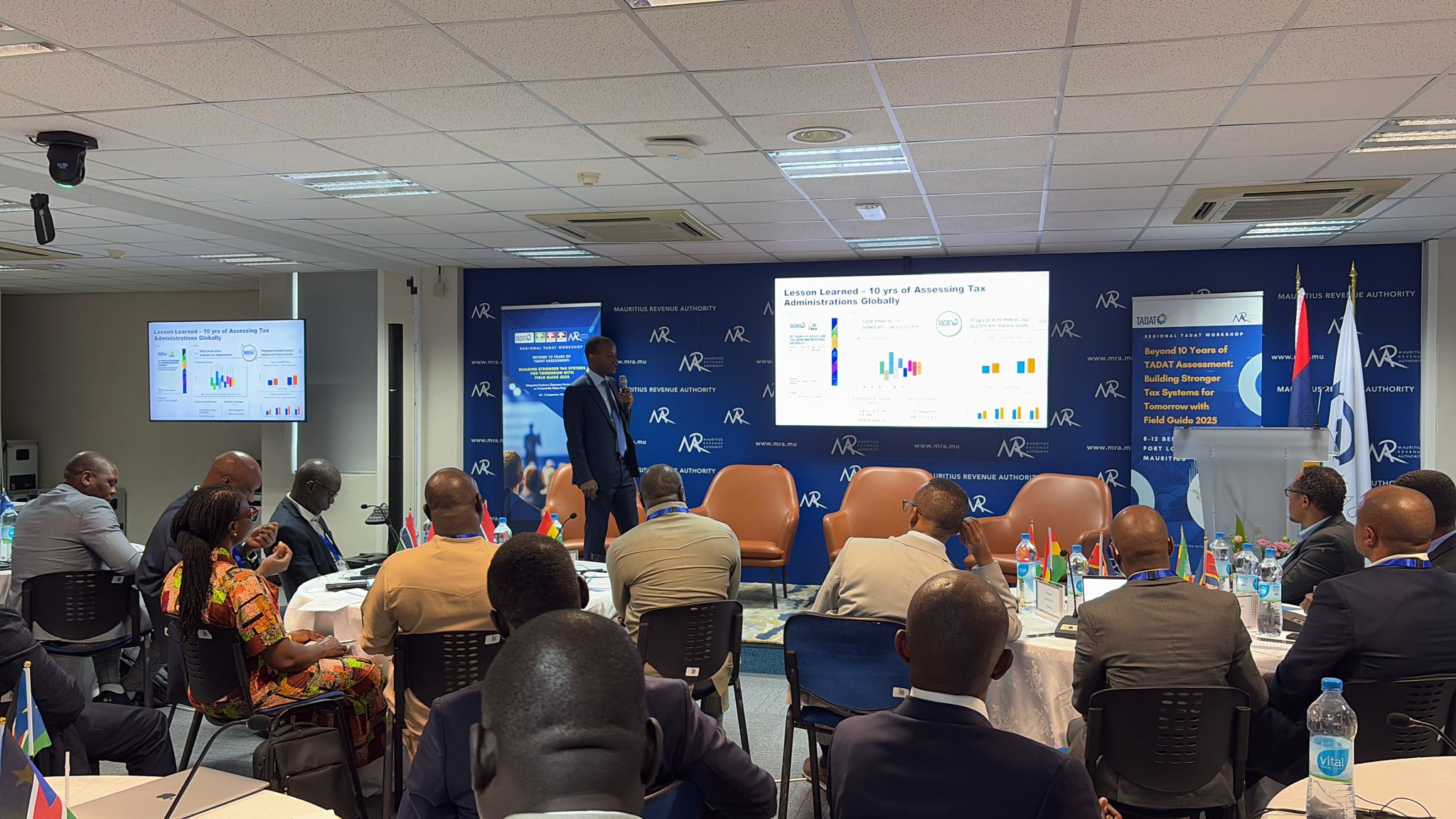
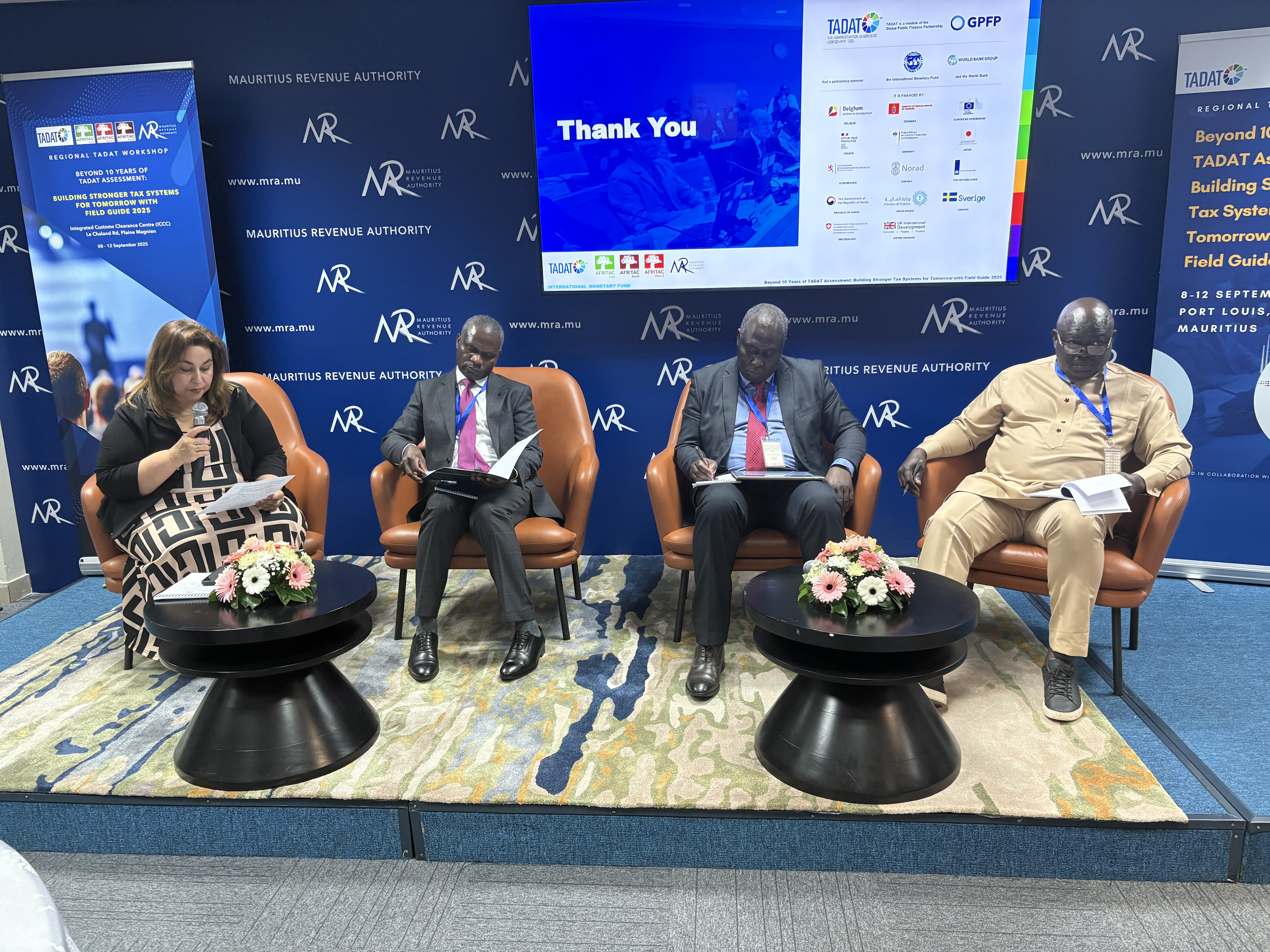
.jpg)
.jpg)
.jpg)
.jpg)
.jpg)
.jpg)
.jpg)
.jpg)
.jpg)
